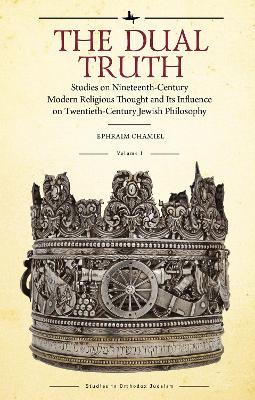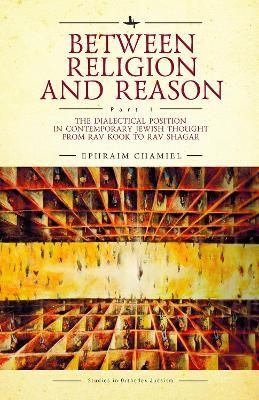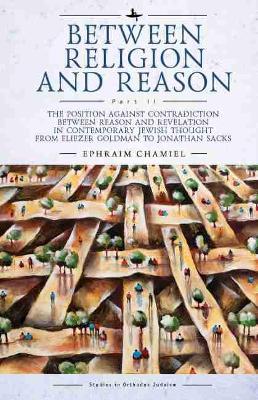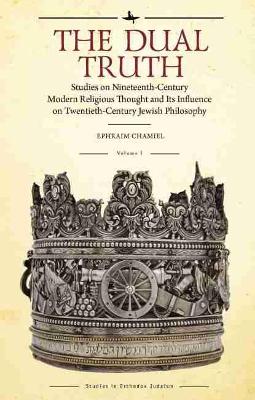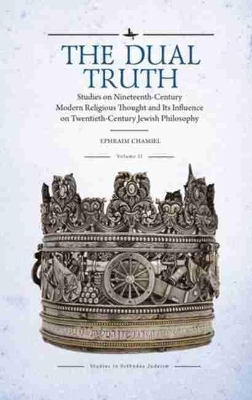Studies in Orthodox Judaism
8 total works
This book is the sequel to the Ephraim Chamiel’s previous book The Middle Way, which focused on the challenges faced by the members of the “Middle Trend” in nineteenth-century Jewish thought.
This book explores the dialectical approaches of Rav Kook, Rav Soloveitchik, Rabbi Abraham Joshua Heschel, Samuel Hugo Bergman, Leo Strauss, Ernst Simon, Emil Fackenheim, Rabbi Mordechai Breuer, his uncle Isaac Breuer, Tamar Ross, Rabbi Shagar, Moshe Meir, Micah Goodman and Elchanan Shilo. It also discusses the interpretations of these thinkers offered by scholars such as Michael Rosenak, Avinoam Rosenak, Eliezer Schweid, Aviezer Ravitzky, Avi Sagi, Binyamin Ish-Shalom, Ehud Luz, Dov Schwartz, Rabbi Yuval Cherlow, Lawrence Kaplan, and Haim Rechnitzer. The author questions some of these approaches and offers ideas of his own.
This study concludes that many scholars bore witness to the dialectical tension between reason and revelation; only some believed that a solution was possible. That being said, and despite the paradoxical nature of the dual truth approach (which maintains that two contradictory truths exist and we must live with both of them in this world until a utopian future or the advent of the Messiah), increasing numbers of thinkers today are accepting it. In doing so, they are eschewing delusional and apologetic views such as the identicality and compartmental approaches that maintain that tensions and contradictions are unacceptable.
Running like a thread through their philosophies is the attempt to reconcile the Jewish belief in revelation with Western culture, Western philosophy, and the conclusions of scientific research. Among these attempts is Luzzatto's "dual truth" approach.
The Dual Truth is the sequel to the Ephraim Chamiel's previous book The Middle Way, which focused on the challenges faced by members of the "Middle Trend" in nineteenth-century Jewish thought.
Running like a thread through their philosophies is the attempt to reconcile the Jewish belief in revelation with Western culture, Western philosophy, and the conclusions of scientific research. Among these attempts is Luzzatto's "dual truth" approach.
The Dual Truth is the sequel to the Ephraim Chamiel's previous book The Middle Way, which focused on the challenges faced by members of the "Middle Trend" in nineteenth-century Jewish thought.

